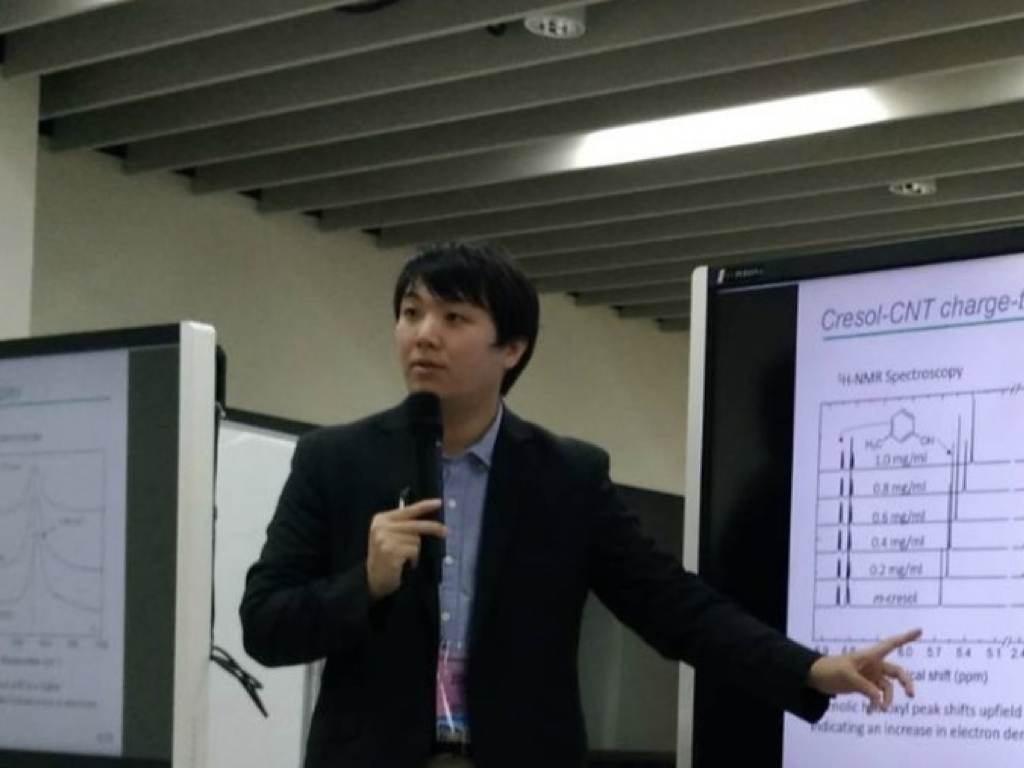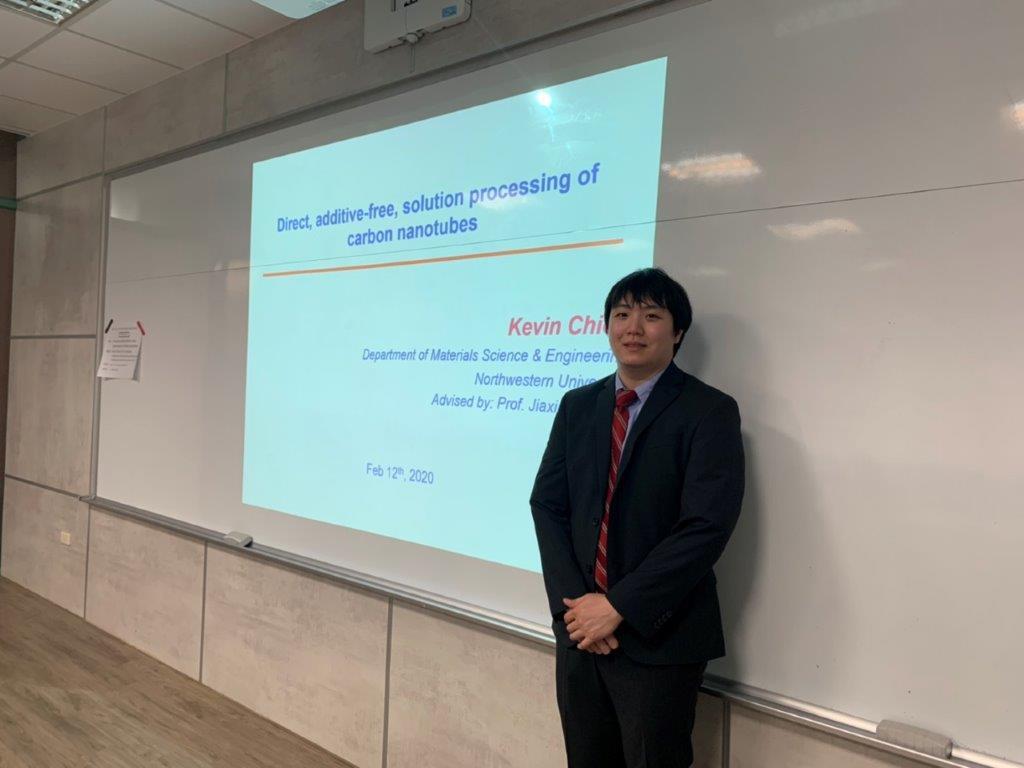Research is an unquantifiable kind of compensation, says Assistant Professor Kevin Chiou who develops innovative polymer nanocomposites


2021-07-14
Can materials be made stronger and lighter at the same time? Polymer nanocomposites have a long history of developing new functionalities by combining existing materials. Assistant Professor Kevin Chiou of the Department of Materials and Optoelectronic Science combines his expertise in polymer science and carbon materials to develop innovative polymer nanocomposites. He joined the faculty at National Sun Yat-sen University in August last year, right after earning his doctoral degree.
Under the tutelage of Prof. Jiaxing Huang, Kevin earned PhD degree in Materials Science and Engineering from Northwestern University. After completing his studies, Kevin returned to Taiwan to serve as an assistant professor. During his PhD studies, he was inspired by Professor Chun-Hu Chen and his graduate student Ren-Huai Jhang of the Department of Chemistry, NSYSU. The pair of scholars visited Prof. Huang’s laboratory to collaborate on a novel product – graphene oxide dough, which turned out to be a great success. From working alongside with Ren-Huai and Prof. Chen, Kevin learned that “Taiwan has a lot of outstanding students.” Upon arriving at NSYSU, this impression persisted and Kevin continues to work in collaboration with Prof. Chen on various projects.
Now that Kevin started his own career at NSYSU, he hopes to combine his expertise in polymer science and carbon nanomaterials to develop functional nanocomposites. “Nanocomposites are already used in the industry, though not in a large scale because they are difficult to process. The challenge is to make something new and different.” In essence, one must take a novel approach to resolve persistent problems. On this note, Kevin realizes that he cannot accomplish this on his own, so he is open to ideas and related projects. In particular, he notes that students should be given enough creative space to follow their personal interests to formulate a unique research project that they can be proud of.
Professor Chiou admitted that in his research work, he is purely curiosity driven. “It is an unquantifiable kind of compensation. No one should ever do research for money.” He hopes that more students in Taiwan do not content themselves with a master’s degree and pursue PhD programs. He also commented that, students really should use graduate studies to develop a unique specialty rather than just a step to a new job. “To survive in today’s rapidly developing working environment, our students must develop unique and irreplaceable knowledge to truly ensure a successful future”.
Can materials be made stronger and lighter at the same time? Polymer nanocomposites have a long history of developing new functionalities by combining existing materials. Assistant Professor Kevin Chiou of the Department of Materials and Optoelectronic Science combines his expertise in polymer science and carbon materials to develop innovative polymer nanocomposites. He joined the faculty at National Sun Yat-sen University in August last year, right after earning his doctoral degree.
Under the tutelage of Prof. Jiaxing Huang, Kevin earned PhD degree in Materials Science and Engineering from Northwestern University. After completing his studies, Kevin returned to Taiwan to serve as an assistant professor. During his PhD studies, he was inspired by Professor Chun-Hu Chen and his graduate student Ren-Huai Jhang of the Department of Chemistry, NSYSU. The pair of scholars visited Prof. Huang’s laboratory to collaborate on a novel product – graphene oxide dough, which turned out to be a great success. From working alongside with Ren-Huai and Prof. Chen, Kevin learned that “Taiwan has a lot of outstanding students.” Upon arriving at NSYSU, this impression persisted and Kevin continues to work in collaboration with Prof. Chen on various projects.
Now that Kevin started his own career at NSYSU, he hopes to combine his expertise in polymer science and carbon nanomaterials to develop functional nanocomposites. “Nanocomposites are already used in the industry, though not in a large scale because they are difficult to process. The challenge is to make something new and different.” In essence, one must take a novel approach to resolve persistent problems. On this note, Kevin realizes that he cannot accomplish this on his own, so he is open to ideas and related projects. In particular, he notes that students should be given enough creative space to follow their personal interests to formulate a unique research project that they can be proud of.
Professor Chiou admitted that in his research work, he is purely curiosity driven. “It is an unquantifiable kind of compensation. No one should ever do research for money.” He hopes that more students in Taiwan do not content themselves with a master’s degree and pursue PhD programs. He also commented that, students really should use graduate studies to develop a unique specialty rather than just a step to a new job. “To survive in today’s rapidly developing working environment, our students must develop unique and irreplaceable knowledge to truly ensure a successful future”.
Click Num:
Share
